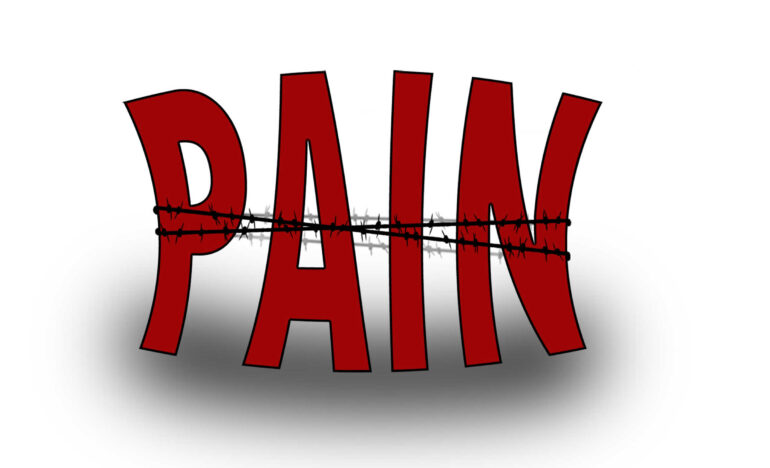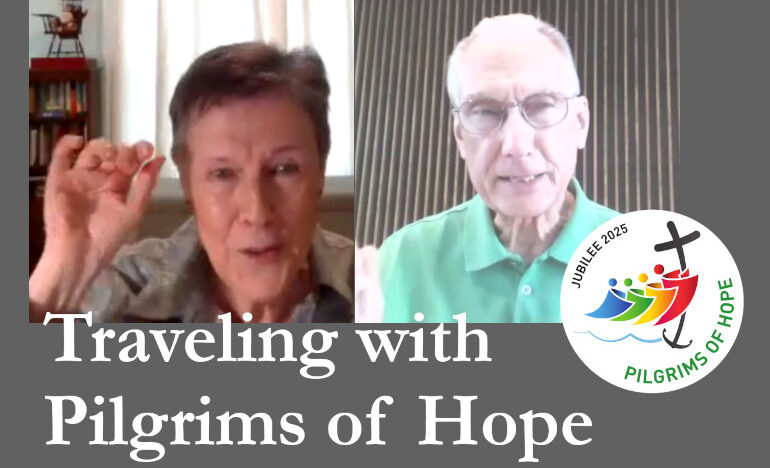Pain: Ignore it at your own peril

An Assembling God’s Puzzle video
By Fr. Garry Richmeier, C.PP.S.
Pain is a piece of life’s puzzle that most all of us would rather do without. If given a choice, we would probably design a life that is pain-free, filled only with pleasant, feel-good things. Some pain seems to have no purpose, and is something only to be endured. But pain is often a signal that something in our life needs attention in order for us to live happily and healthily.
For example, the pain in some part of my body, like chest pain, may be a sign that something is wrong and tells me to get it checked out before it gets more serious. In the same way, the pain of loneliness reminds me that I need connection with others in order to live.
There are different kinds of pain. There is physical pain, which most everyone understands, even if the root cause of the pain is unknown. Then there is emotional or psychological pain. This pain is less understandable for us because it is experienced differently by people.
Whereas everyone feels the same physical pain of accidentally cutting one’s finger, not everyone feels the same pain involved in being insulted, for example. Emotional pain includes feelings of shame, loss, loneliness, guilt, depression, anxiety, and uselessness, to name a few. And we ignore or deny the pain at our own peril.
One way we ignore pain is to say “I’m tough, I can take it.” Although there is nothing we can do with some pain, claiming we are impervious to pain and doing nothing to alleviate it can be self-defeating and dangerous. When we are in pain, it automatically takes much of our attention and focus, which means we are less able to attend to other important things, like our work or our relationships. Pain can zap our energy and leave us dangerously close to running out of energy. This is what happens when someone suffers the pain of uselessness and meaningless for a long time, and kills themselves because the pain is too much.
Sometimes we try to dull the pain, or numb ourselves to it. People often turn to alcohol or other drugs for this purpose. Those things temporarily get rid of the pain, but the side effects are debilitating.
Sometimes we simply deny we are in pain. An example is when someone who gets laid off says “I’ve lost jobs before. You just move on.” If the pain is not acknowledged and dealt with somehow, it can stay locked inside and develop into depression.
We as a society sometimes deny the pain among us, which causes us much heartache. We’ve seen what happens when the experience of pain in one part of society (e.g., economic exclusion and prejudice) is downplayed or explained away instead of being effectively dealt with. The pain builds up until it becomes unbearable. And like a person who kills themselves to get away from the pain, people will do irrational things to get away from societal pain.
Riots are often a reaction to long-term societal pain. An example from history is the French revolution, when the poor could take the suffering no longer and rampaged, beheading many of the ruling class. Marie Antoinette, when told of the suffering of the poor and their having no bread, is rumored to have said “Let them eat cake.” You can’t deny societal suffering much more blatantly than that.
So what to do with pain? First of all, we need to acknowledge it and not minimize it. It doesn’t matter if others are suffering more than us, or if someone says we shouldn’t be hurting. Our pain is our pain, and we have a right to reduce or alleviate it if possible.
Then we need to do everything we can to identify the source of the pain. With physical pain, this will often mean employing the help of medical professionals. But even then, it is important to try to get to the root cause of the pain rather than simply covering up the symptoms with pain killers.
Identifying the cause of emotional pain is sometimes more challenging, but it can be accomplished by examining life events, experiences, and one’s reactions to those things. Employing the help of a counselor can help in this regard, and can help identify ways to reduce the emotional pain.
In my experience, the most effective way to reduce emotional/psychological pain is connection with others, which is relationships. Since we all have basically the same experiences of pain, we have the ability to relate to each other’s pain and help each other carry it.
The saying “Many hands lighten the load” is true when carrying a load of pain. But this means the person in pain must let others know they are in pain, and reach out for help. Sometimes people let embarrassment or shame stop them from doing that. And others must be tuned in to the possibility that the person is in pain even if it is not obvious, believe them when they describe it, and support them through it. Apathy, prejudice, or ignorance can prevent this from happening.
Pain is a fact of life, a piece of the puzzle. But if we face pain (both our own and other’s pain) head-on with full awareness, and address it together, we can get through it much better.
All of the videos in this series can be found here: Assembly God’s Puzzle.
Never miss an article published on the Renewal Center website: Sign up to receive our newsletters.
[Fr. Garry Richmeier, a Precious Blood priest and spiritual director, holds a Master’s of Divinity Degree from St John’s University in Collegeville, Minnesota, and a Master’s of Counseling Psychology degree from the University of Missouri-Kansas City. He is a licensed professional counselor and a licensed marriage and family therapist.]
Illustration 10557801 © Catherine Tretyakova | Dreamstime.com
We’d Like to Hear from You!
We’d like to know what you think about this article. Send us a comment using the form below. Do you have a suggestion? Is there something you want to learn more about? Send us a note.
Related

Pilgrims of Hope, Episode 6: Walking with Cancer Survivors
Hosted by Fr. Ron Will, C.PP.S.
We are talking with people who find hope amid difficult circumstances or bring hope to others. In this episode, Kathy Keary talks about how centering prayer, journaling and other spiritual practices helped her cope with two life threatening health issues.

The Rollercoaster Torture
An Assembling God’s Puzzle video
By Fr. Garry Richmeier, C.PP.S.
Life is full of ups and downs, like a roller coaster, and that fact is a piece of life’s puzzle that we must deal with. Depending on how we deal with it, it can be torture, or it can be simply another difficult aspect of life to be navigated. How do we avoid the torture?
Categories
Assembling God's Puzzle Coffee with Padre Cooking & Spirituality Encounters of the 4th Kind Family Matters Reflections on the Eucharsitic Prayers Spiritual Resources Taize Prayers The Contemplative Life Traveling with Pilgrims of Hope Uncategorized Videos Week of Prayer for Uhristian Unity When you need a little help
